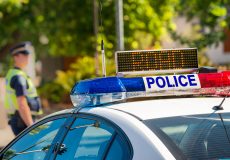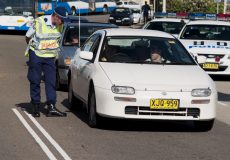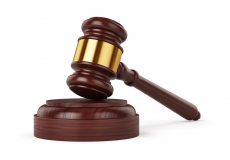A non-conviction may be available to all drink driving matters and you should obtain legal advice to best prepare your case.
Our Team

Gavin Hanrahan
Managing Partner

Saquib Shadman
Lawyer

Alex Crisp
Lawyer

Jessica Tuttiett
Paralegal
Drink Driving Lawyers in NSW
Our Criminal Law Team can assist you with matters related to drink driving (DUI), we have the experience and expertise necessary to ensure you receive the best possible outcome.
We’ve been defending the people of Newcastle, Lake Macquarie, Central Coast and the Hunter region since 1969 and have helped our clients to achieve the best possible outcomes in all Criminal Law matters.
We are used to dealing with the Police, and know all the ‘ins and outs’ of the Courts and Justice system.
If you have been charged with this type of crime, contact our Criminal Law Team today to book a teleconference or appointment. We’ll fight vigorously to protect your freedom and rights.
Why choose us to represent you when your drink driving matter goes to Court?
A large proportion of individuals who find themselves before the Local Court are charged as a consequence of drink driving offences. The majority of drink driving offences are now dealt with by way of measuring the concentration of alcohol in a person’s system by police obtaining a reading by way of breathalyser.
Drink driving penalties within NSW are prescribed by legislation. A full list of driving penalties and their outcomes can be obtained by accessing this article on the Turnbull Hill website: Traffic Law: Common Offences & Penalties.
If a Court convicts you for drink driving, the Court must impose a period of disqualification.
The only way to avoid a period of disqualification is for your matter to be dealt with by way of a non-conviction under the Crimes (Sentencing and Procedure) Act. When sentencing individuals under the Act, the Court may not record a conviction if it finds it necessary to do so. A non-conviction requires the Magistrate to find that you are guilty of an offence but they do not record a conviction. A non-conviction is available to all drink driving matters and you should obtain legal advice to best prepare your case.
We will advise you on how to best prepare your case and the further matters which may assist you to decrease the period of disqualification imposed by a Court including attendance at a Traffic Offenders Program, drafting of character references and explaining the Driver Interlock Program.
Can I refuse a breath analysis?
No. It is an offence to do so and doing so could result in a ‘Refuse Breath Analysis Charge’. If you undergo a breath test that returns a positive reading, you will be asked to provide a sufficient sample for a full breath analysis.
If you refuse or fail to provide a sufficient sample, without a reasonable excuse, you will be charged.
A reasonable excuse does not include refusing on the basis that you want to seek legal advice beforehand.
What happens if I have caused an accident while drink driving?
Drink driving plays a role in an estimated 18% of all fatal motor vehicle accidents in NSW.
If you have caused an motor vehicle accident whilst under the influence you will be asked to submit to a breath test following the accident. If this test returns a positive reading you will be taken to a nearby police station and asked to provide a sufficient sample for a full breath analysis. If the breath analysis returns a positive reading you will be charged with drink driving and any other offences related to the accident, including ‘driving in a manner dangerous to the public’, ‘dangerous driving occasioning grievous bodily harm’ and ‘dangerous driving occasioning death’. It is at this stage that we recommend seeking legal advice immediately.
If you are injured as a result of the accident you will be taken to the hospital for treatment. Police officers will then meet you at the hospital and, with the help of a Doctor, draw a sample of your blood to be used for testing. This is compulsory and if you refuse or fail to provide a sample of your blood you could be charged. However, there is a legal process that the police must follow in order to draw a sample of your blood. We recommend seeking legal advice to ensure this process was followed; otherwise the sample, and its results, could be inadmissible.
Other complex issues, like insurance and compensation, may also be a factor when it comes to accidents caused by drink driving.
In any case, if you have caused any type of accident whilst under the influence, we recommend seeking legal advice immediately.
Drink Driving Offences
What is a Novice Range PCA drink driving offence and what are the penalties?
A Novice Range PCA in NSW is an offence committed by any person who is subject to having a zero blood concentration limit whilst driving, it also applies to any driver who doesn’t have a valid licence, who drives a motor vehicle with a blood concentration between 0.00 and 0.019. The severity of the penalty depends on whether the driver is a first offender or repeat offender. Upon committing this offence, first offenders can receive a maximum fine of $2,200 and a disqualification from driving for 3-6 months. Repeat offenders (within the last 5 years) can receive a fine of $3,300 and a disqualification from driving for 6-12 months with an interlock exemption order or 3 months disqualification with an interlock device period of 12 months.
Who can be charged with a Novice Range PCA? Any driver who is subject to having a zero blood concentration limit whilst driving, i.e. learners and provisional drivers. It also applies to any driver who doesn’t have a valid licence.
Does a Novice Range PCA charge leave a criminal record? Yes. Such a charge would appear on any standard criminal history check.
Is there any way I can avoid having a Novice Range PCA charge on my record? Yes. You may be afforded the leniency of a non-conviction order. Read our article on this topic for further information: Can You be Found Guilty With No Conviction Recorded?
Will I need a lawyer if I receive a Novice Range PCA charge? We strongly recommend that you engage a lawyer. If you want to avoid a criminal conviction and potentially keep your licence, your chances are increased with legal representation. Experience and expertise will ensure you receive the best possible outcome.
What is a Special Range PCA drink driving offence and what are the penalties?
A Special Range PCA in NSW is an offence committed by any person who is subject to having a zero blood concentration limit whilst driving, i.e. learners and provisional drivers. It also applies to any driver who doesn’t have a valid licence. Additionally, it applies to bus drivers and taxi drivers who have a compulsory 0.02 blood concentration limit whilst operating their vehicles, who drives a motor vehicle with a blood concentration between 0.02 and 0.049. The severity of the penalty depends on whether the driver is a first offender or repeat offender. Upon committing this offence, first offenders can receive a maximum fine of $2,200 and a disqualification from driving for 3-6 months. Repeat offenders (within the last 5 years) can receive a fine of $3,300 and a disqualification from driving for 6-12 months with an interlock exemption order or 3 months disqualification with an interlock device period of 12 months.
Who can be charged with a Special Range PCA? Any driver who is subject to having a zero blood concentration limit whilst driving, i.e. learners and provisional drivers. It also applies to any driver who doesn’t have a valid licence. Additionally, it applies to bus drivers and taxi drivers who have a compulsory 0.02 blood concentration limit whilst operating their vehicles.
Does a Special Range PCA charge leave a criminal record? Yes. Such a charge would appear on any standard criminal history check.
Is there any way I can avoid having a Special Range PCA charge on my record? Yes. You may be afforded the leniency of a non-conviction order. Read our article on this topic for further information: Can You be Found Guilty With No Conviction Recorded?
Will I need a lawyer if I receive a Special Range PCA charge? We strongly recommend that you engage a lawyer. If you want to avoid a criminal conviction and potentially keep your licence, your chances are increased with legal representation. Experience and expertise will ensure you receive the best possible outcome.
What is a Low Range PCA drink driving offence and what are the penalties?
A Low Range PCA in NSW is an offence committed by any person who drives a motor vehicle with a blood concentration between 0.05 and 0.079. The severity of the penalty depends on whether the driver is a first offender or repeat offender. Upon committing this offence, first offenders can receive a maximum fine of $2,200 and a disqualification from driving for 3-6 months. Repeat offenders (within the last 5 years) can receive a fine of $3,300 and a disqualification from driving for 6-12 months with an interlock exemption order or 3 months disqualification with an interlock device period of 12 months.
Who can be charged with a Low Range PCA? Any person driving a motor vehicle in NSW.
Does a Low Range PCA charge leave a criminal record? Yes. Such a charge would appear on any standard criminal history check.
Is there any way I can avoid having a Low Range PCA charge on my record? Yes. You may be afforded the leniency of a non-conviction order. Read our article on this topic for further information: Can You be Found Guilty With No Conviction Recorded?
Will I need a lawyer if I receive a Low Range PCA charge? We strongly recommend that you engage a lawyer. If you want to avoid a criminal conviction and potentially keep your licence, your chances are increased with legal representation. Experience and expertise will ensure you receive the best possible outcome.
What is a Mid Range PCA drink driving offence and what are the penalties?
A Mid Range PCA in NSW is an offence committed by any person who drives a motor vehicle with a blood concentration between 0.08 and 0.149. The severity of the penalty depends on whether the driver is a first offender or repeat offender. Upon committing this offence, first offenders can receive a maximum penalty of imprisonment for 9 months, a fine of $2,200 and a disqualification from driving for 3-6 months with an automatic interlock period of 2 years or 6-12 months with an interlock exemption order. Repeat offenders can receive a maximum penalty of imprisonment for 9 months, a fine of $3,300 and a disqualification from driving for 6-9 months with an interlock period of 24 months or 12-36 months with an interlock exemption order.
Who can be charged with a Mid Range PCA? Any person driving a motor vehicle in NSW.
Does a Mid Range PCA charge leave a criminal record? Yes. Such a charge would appear on any standard criminal history check.
Is there any way I can avoid having a Mid Range PCA charge on my record? Yes. You may be afforded the leniency of a non-conviction order. Read our article on this topic for further information: Can You be Found Guilty With No Conviction Recorded?
Will I need a lawyer if I receive a Mid Range PCA charge? We strongly recommend that you engage a lawyer.. If you want to avoid a criminal conviction and potentially keep your licence, your chances are increased with legal representation. Experience and expertise will ensure you receive the best possible outcome.
What is a High Range PCA drink driving offence and what are the penalties?
A High Range PCA in NSW is an offence committed by any person who drives a motor vehicle with a blood concentration of 0.150 or above. The severity of the penalty depends on whether the driver is a first offender or repeat offender. Upon committing this offence, first offenders can receive a maximum fine of $3,300 and a disqualification from driving for a minimum period of 6 months and a maximum period of 9 months with an interlock period of 24 months. Repeat offenders (within the last 5 years) can receive a fine of $5,500 and a disqualification from driving for a minimum of 9 months with a maximum disqualification of 12 months. They will also receive an interlock device period of 48 months. An interlock exemption order can be made for a high-range PCA offence. If an exemption order is made, the disqualification for a first offence is between 12-36 months and 24-unlimited months for a second offence.
Who can be charged with a High Range PCA? Any person driving a motor vehicle in NSW.
Does a High Range PCA charge leave a criminal record? Yes. Such a charge would appear on any standard criminal history check.
Is there any way I can avoid having a High Range PCA charge on my record? No.
Will I need a lawyer if I receive a High Range PCA charge? We strongly recommend that you engage a lawyer. A High Range PCA charge is a very serious offence that does often lead to imprisonment, which will have a major impact on your life and the lives of your family and friends. It is therefore highly recommend that you immediately seek legal representation upon receiving a High Range PCA charge. Experience and expertise will ensure you receive the best possible outcome.
What are the possible defences for a drink driving offence?
The majority of people who are charged with a drink driving offence plead guilty, because doing so usually leads to a better overall outcome; however there are a number of circumstances in which it is possible to plead not guilty and defend the charge. Here a few of the most commonly used drink driving defences:
1. Honest & Reasonable Mistake
If you can prove that you honestly and reasonably thought you were under the limit at the time of driving your motor vehicle, this could form a defence. For example, if you consume food at a social gathering that contains alcohol and you were not aware of the food’s alcoholic content, this would be an honest and reasonable mistake. Another example might be if you had ordered “mocktails” (cocktails containing no alcohol) at a bar that were made incorrectly by the bartender using alcohol. While this is a legitimate defence, it is also a hard one to prove, which is why legal advice is recommended before going down this path.
2. Challenge the Reading
If you can prove there was a problem or issue with the equipment the police used to take your blood alcohol reading, and this resulted in a reading that was not correct, this could form a defence. The equipment used by the police is typically very accurate and they do tend to keep it well maintained, which makes this defence challenging but not impossible. The breath tester that the police use on you in the first instance is not completely accurate and is prone to error, which is why you need to undergo a full breath analysis before you are charged. To defend the charge you will need to prove that the breath analysis reading used to charge you was not an accurate representation of your blood concentration at the time of driving the motor vehicle.
3. The Two Hour Rule
The police are not allowed to conduct any kind of breath analysis on you if more than two hours has passed since you last drove a motor vehicle. For example, if you were involved in an accident and the police who arrived on the scene attended to other injured people first, instead of driving you to the station for a breath analysis, it is possible that two hours might have passed before you were required to do a breath analysis.
4. The Home Safe Rule
It is illegal for police to conduct any kind of breath test on you if you have entered your usual place of residence (home). For example, if you are on your way home and are caught driving erratically, but still somehow manage to make it inside your residence, the police cannot legally enter and conduct a breath test and use the results as evidence against you. However, the police can make general observations that include alcohol on your breath, slurred speech, glassy eyes and your overall stability. There is no definite legal definition of what constitutes a person’s residence (driveway, etc), so, if you are planning on using this as a defence, it is important to seek legal advice immediately.
5. Police Not Complying With Procedure
There are specific legal procedures that police must follow when they arrest and charge someone with a drink driving charge. These procedures are governed by NSW law. If it can be proved that the police failed to adhere to these procedures, this could form a defence. For example, if police were to book you using outdated forms (this occurred in the Northern Territory in 2012 whereby hundreds of people had their drink driving charges overturned because police had used outdated forms to record the breath analysis results).
Related Services
-
 Drug Driving Lawyers
Drug Driving Lawyers
-
 Penalty Notices
Penalty Notices
-
 Criminal Law
Criminal Law
-
 Sex Crimes and Sexual Offences
Sex Crimes and Sexual Offences
-
 Corporate Crime
Corporate Crime
-
 Fraud & Cyber Fraud
Fraud & Cyber Fraud
-
 Bribery
Bribery
-
 Bankruptcy Crime
Bankruptcy Crime
-
 Misappropriation of Assets and Funds
Misappropriation of Assets and Funds
-
 Environmental Crime
Environmental Crime
-
 Identity Crime
Identity Crime
-
 Tax Fraud
Tax Fraud
-
 Money Laundering
Money Laundering
-
 Insider Trading
Insider Trading
-
 Perjury and False Accusations
Perjury and False Accusations
-
 Larceny and Stealing
Larceny and Stealing
-
 Drug Offences
Drug Offences
-
 Break and Enter
Break and Enter
-
 Murder and Manslaughter
Murder and Manslaughter
-
 Assault
Assault
-
 Stalking and Intimidation
Stalking and Intimidation
-
 Computer Offences and Cybercrime
Computer Offences and Cybercrime
-
 Affray and Public Violence
Affray and Public Violence
-
 Malicious Damage to Property
Malicious Damage to Property
-
 AVOs Apprehended Violence Orders
AVOs Apprehended Violence Orders
-
 Hinder an Investigation
Hinder an Investigation
-
 Firearm Offences
Firearm Offences
-
 Centrelink Fraud
Centrelink Fraud
-
 Extortion and Blackmail
Extortion and Blackmail
Helpful Links
If you are looking for further information on drink driving (DUI) offences, we hope the following links will help.
Get help now
We respond in 24 hours or less!
"*" indicates required fields
Articles
-
 10/04/2025 by Saquib Shadman What to do if you’re arrested in NSW
10/04/2025 by Saquib Shadman What to do if you’re arrested in NSW -

-

-
 10/07/2024 by Gavin Hanrahan Know your rights when talking to the police
10/07/2024 by Gavin Hanrahan Know your rights when talking to the police -

-
 15/05/2018 by Gavin Hanrahan Cameras to detect mobile phone usage while driving from 1 July 2018
15/05/2018 by Gavin Hanrahan Cameras to detect mobile phone usage while driving from 1 July 2018 -
 30/11/2015 by Gavin Hanrahan Drug Offences: The difference between small, traffickable and indictable quantities
30/11/2015 by Gavin Hanrahan Drug Offences: The difference between small, traffickable and indictable quantities -
 16/02/2021 by Gavin Hanrahan Can You be Found Guilty With No Conviction Recorded?
16/02/2021 by Gavin Hanrahan Can You be Found Guilty With No Conviction Recorded? -
 26/04/2016 by Gavin Hanrahan Jury Duty - A Guide For Potential Jurors
26/04/2016 by Gavin Hanrahan Jury Duty - A Guide For Potential Jurors -
 01/07/2016 by Gavin Hanrahan Cyber harassment, cyber stalking and cyber bullying: the offences and penalties
01/07/2016 by Gavin Hanrahan Cyber harassment, cyber stalking and cyber bullying: the offences and penalties






 Liability limited by a scheme approved under Professional Standards Legislation
Liability limited by a scheme approved under Professional Standards Legislation